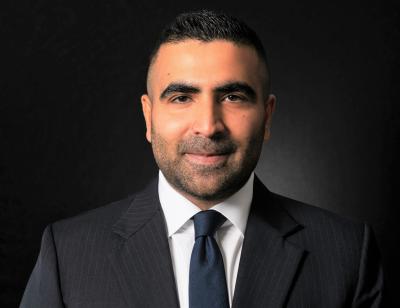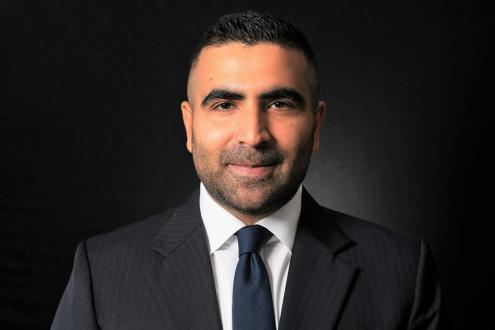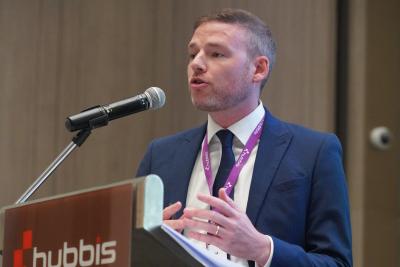Henley & Partners on How Investment Migration can Complement Robust Estate & Legacy Planning

Nirbhay Handa of Henley & Partners
Jul 11, 2022
The Hubbis Thailand Wealth Management Forum took place in Bangkok on May 25, during which the second panel discussion focused attention on the right tools and strategies to secure private clients’ wealth and legacy planning for the Next Generations. The panel of experts reviewed developments in wealth planning & structuring, as well as issues around family succession. They addressed challenges facing UHNW families as wealth transitions to the younger generations. They considered the increasing importance of sustainability, climate and ESG, and even looked at the role of investment migration to secure alternative residence and citizenship options for clients and their family members. It is on this last topic that Nirbhay Handa offered his particular expertise and insights as Group Head of Business Development at investment migration specialists Henley & Partners. We have summarised some of his observations in this short report.
Hubbis has worked closely with Henley & Partners for several years, helping them promote their investment migration activities to wealth management partners and clients in the region. Henley has championed the investment migration industry for more than two decades. The firm has grown especially rapidly in the past five years, particularly since the start of the pandemic. The firm has expanded its global footprint fairly aggressively, with 35 offices globally today, and plans to open another 12 or possibly even more offices this year, including new offices in the Middle East, Africa and South America.
Henley’s two core activities
The firm has two core businesses, one advising private clients on their options and then helping them execute, and the second advising government on the inward investment migration programmes.
In the world of private client advice, Henley works closely with the wealth management industry and associated professions. The firm’s advisors are in constant liaison with private bankers, private client lawyers, financial advisors, IAMs, tax advisors, corporates, fiduciary companies, and others who refer clients.
Nirbhay first explained to delegates that Thailand, as with much of the region, represents a very fertile market for wealth creation. He added that many wealthy clients and families now consider investment migration opportunities as part of their overall estate and legacy planning.
Evolving needs and objectives
“Investment migration historically was really centred around people physically wanting to move, but now it is more for building flexibility and resilience around the individual’s and the family’s wealth,” he reported.
“Indeed, we now have clients who acquire two, three, four different residence permits around the world. Why? Because the more diversified your residence options are, the better prepared you are for the future and the greater your flexibility. It is part and parcel of a well-diversified approach to wealth and planning, alongside overseas assets, overseas residences and so forth.”
He explained that, for example, many families send their children to Western countries for education. “If for example, family members who study in the US want to stay there after completing their studies, it will be difficult. This is one of the reasons why we have families asking us to help with the EB-5 visa to the US so that their children can continue residing there after their studies in case they may want to set up businesses or stay gainfully employed in the US. And there are other alternatives they might look at around the world – for example, just EUR 250,000 buys real estate in Greece, which is a fraction of the cost of Thai property in Bangkok, and along with that investment, perhaps in Athens or an island like Corfu, they can obtain EU residence rights and the rights to Schengen mobility.”
All sorts of motivations
He told delegates about a Thai family who acquired a Greek residency because one of their sons is heavily into motorsports. “With his Greek residency rights, he can easily move to and from Italy for races, tournaments and so forth,” he reported. “Getting a Schengen residency by investing in real estate and going through the application process can open a lot more doors for family members of Thai and other Asia families.”
He said that the great majority of Thai clients want to stay in Thailand long-term, but these residence rights overseas do not require families or individuals to move full-time.
A two-way flow
“On the flip side, Thailand is an excellent place for retirement, so we have a lot of Europeans who are looking at the Thai Elite visa who would like to come here and spend their 60s or 70s in the warmth and enjoy all that this wonderful country has to offer. In short, we are seeing a lot of interest from the Thai families looking outwards but you also see a lot of interest from Western and other families looking at Thailand to come and stay here.”
Nirbhay closed his observations by reiterating the value of portfolio diversification. “And similarly, investment migration adds to this diversification and offers a hedge against political or financial or social instabilities in any countries,” he said. “Add to these elements the worries of pandemics, and that is another defining motivation for flexibility in the face of future pandemics and the like.”

Group Head of Business Development at Henley & Partners

More from Nirbhay Handa, Henley & Partners
Wealth Solutions & Wealth Planning
The Rise of Global Citizens from Asia: Trends and Developments in Investment Migration
Strategy & Practice Management
Henley & Partners: Working with Asia’s HNWIs and Wealth Managers to Promote Investor Migration
Latest Articles
Wealth Solutions & Wealth Planning
Investment Migration, Residency & Citizenship – Key Trends Relevant to HNW and UHNW Private Clients






